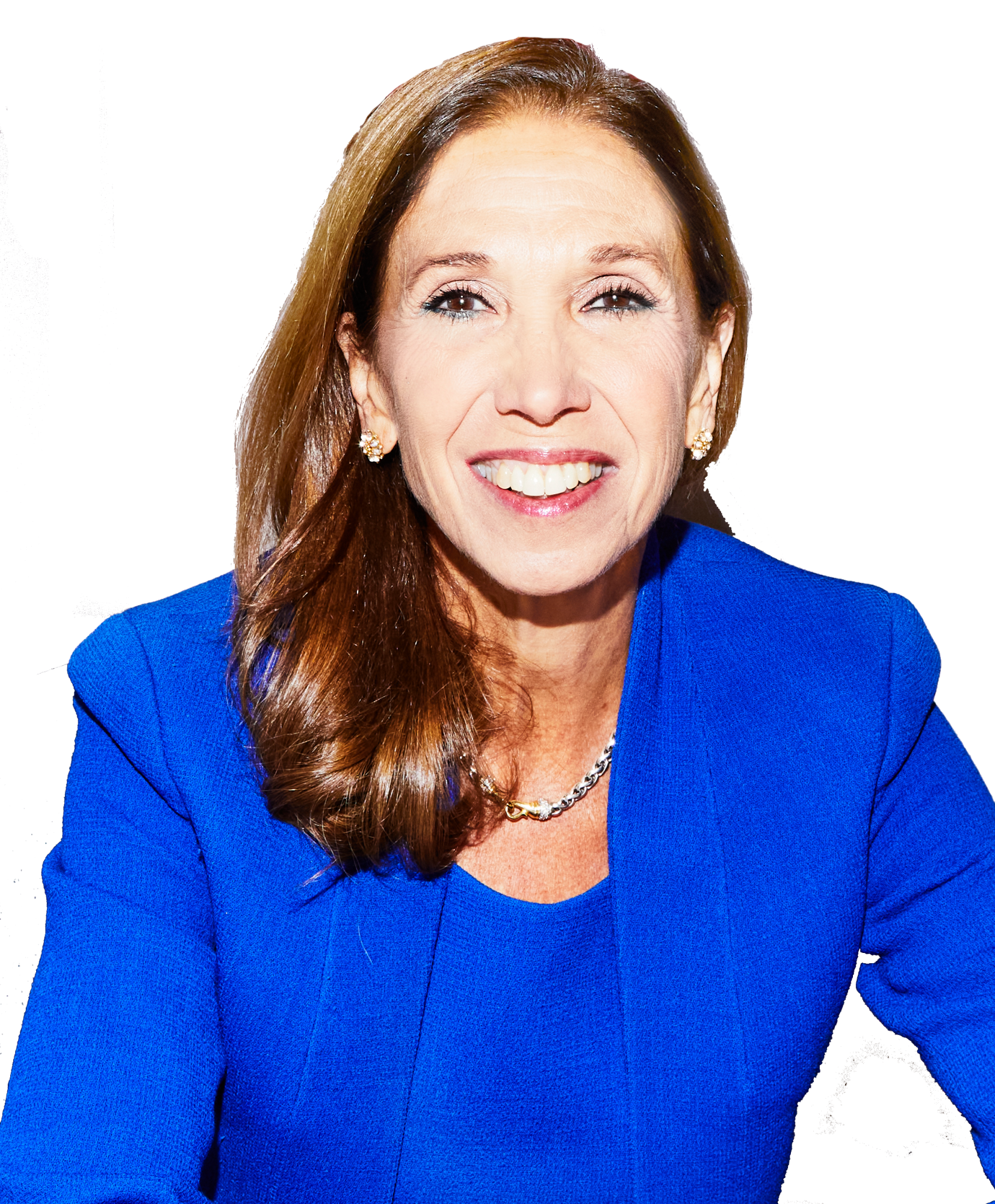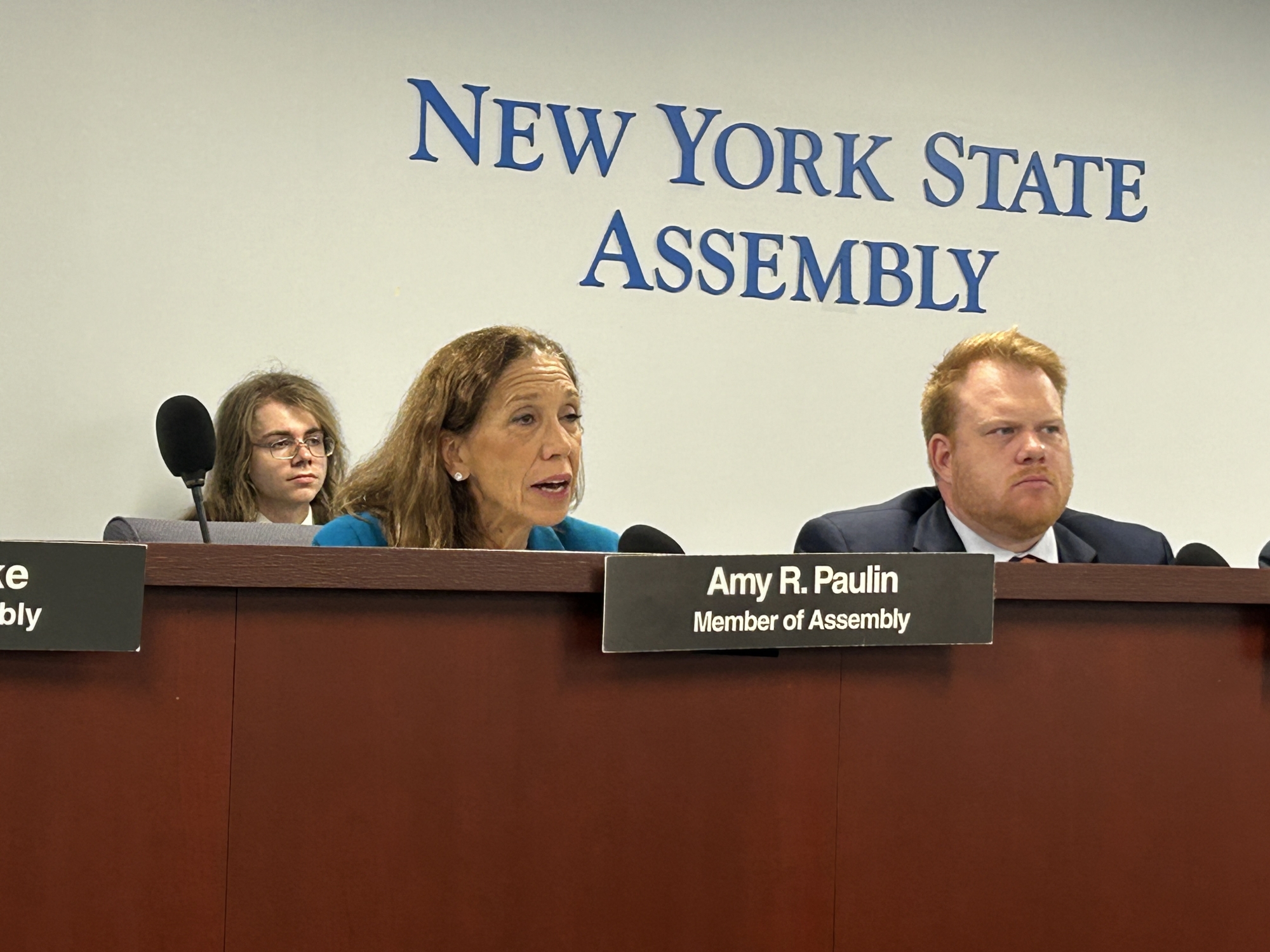Assemblywoman Amy Paulin Chairs Health Committee Psilocybin Public Hearing
Researchers, medical experts, stakeholders spoke of the potential medicinal value and risks of psilocybin
New York, NY – Assemblywoman and Health Committee Chair Amy Paulin (D-Westchester), chaired a public hearing in New York City on Tuesday, September 30th to examine the potential medicinal value and risks of psilocybin.
“The testimony at today’s hearing makes it clear that psilocybin shows great promise for treating debilitating conditions like cluster headaches, depression, PTSD, and chronic pain, which have been resistant to traditional therapies,” said Assemblywoman Paulin. “As we consider legislation to expand access in New York, our priority must be establishing framework that maximizes safety and ensures proper oversight for patients and providers.”
Psilocybin is a naturally occurring psychedelic compound produced by fungi known for its hallucinogenic effects. Currently, psilocybin is classified as a Schedule I controlled substance, however, in October 2018 and November 2019, the Federal Food and Drug Administration designated psilocybin-assisted therapy as a “breakthrough therapy” for treatment-resistant depression and major depressive disorders, indicating that the therapy may offer improved results for such conditions over currently approved treatments. The FDA further signaled growing recognition of psilocybin's therapeutic potential in June 2023 by publishing its first draft guidance on the use of psilocybin for psychiatric/substance use disorders, presenting considerations to industry for designing clinical trials for psychedelic drugs. Tiffany Farchione, M.D., director of the Division of Psychiatry in the FDA's Center for Drug Evaluation and Research stated in the 2023 FDA guidance that "Psychedelic drugs show initial promise as potential treatments for mood, anxiety and substance use disorders."
This federal movement has coincided with policy changes at state and local levels. Denver became the first U.S. city to decriminalize psilocybin in May 2019, with a subsequent city review finding no significant public safety impacts. Since then, momentum has grown across multiple states: Oregon became the first state to both decriminalize psilocybin possession and legalize it for therapeutic use in 2020, reporting an 87% reduction in psilocybin arrests, while Colorado followed with personal use legalization in May 2023 and New Mexico authorized medical use in April 2025 for conditions including treatment-resistant depression and PTSD. Alongside these policy changes, recent clinical research studies have demonstrated psilocybin's effectiveness in treating major depression, alcohol use disorders, and chronic pain conditions like cluster headaches and Complex Regional Pain Syndrome (CRPS).
Following are quotes from several attendees who provided testimony at the hearing.
“The research demonstrates that psilocybin, when administered in legal and treatment-oriented settings, is both safe and effective.” said Dr. Bill Brennan, PhD psychologist, psychedelic researcher, educator, and author. “I’ve witnessed with my own eyes the hope it can bring to those who have suffered the most – our depressed and addicted loved ones, neighbors, and fellow New Yorkers. I very firmly believe that making this breakthrough medicine more widely available is one of the wisest and most compassionate choices we can collectively make.”
Avery Stempel, President and Co-Founder of New Yorkers for Mental Health Alternatives said, “New Yorkers for Mental Health Alternatives (NYMHA) thanks the Assembly Health Committee and Chair Amy Paulin for its attention to this important issue. As a statewide nonprofit dedicated to educating citizens and lawmakers about the potential of psilocybin-containing mushrooms in health and wellness, we are encouraged by the growing conversation in New York. We look forward to continuing our work with lawmakers as they explore safe, equitable pathways for legal access to these promising substances.”
“Our current tools to offer patients with existential and spiritual despair are limited. Psilocybin in a supportive, relational container allows participants to create meaning and improve quality of life in their final days and years,” Dr. Stephanie Van Hope, DNP, RN, Holistic Psychedelic Nurse Collective Co-Founder.
“When combined with the proper safeguards and follow-up psychotherapy, psychedelics can help our patients in ways that no conventional intervention can. They can save lives and restore purpose and meaning to those lives,” said Dr. Casey Paleos, M.D., board-certified psychiatrist with close to 20 years of clinical experience working in hospital-based and private practice settings in New York City and Long Island. “In the midst of the mental health crisis that is plaguing our state and our country, it is therefore unethical, in my opinion, to continue to perpetuate the prohibition on psilocybin.”
“The brain works like a city’s electrical grid,” testified Dr. Kristel Carrington MD, Psychiatrist, Psychotherapist, Psychopharmacologist and Diplomate of the American Board of Psychiatry & Neurology. “Billions of wires (neurons) and switches send signals to power things on and off. Some circuits carry everyday signals (like habits, emotions, perception) and some circuits are powerful “reward loops” that can trap the system in addiction. Addictive substances like opioids or alcohol, flood and overload those reward circuits by sending a surge of electricity into one pathway again and again until the system is stuck in a loop. Instead of overloading a particular circuit, psilocybin redistributes the power across the grid. New connections light up, areas that usually do not usually communicate with each other start sharing signals. It does not overload the brain’s addiction circuits, so it doesn’t trigger the compulsive drive seen with addictive drugs.”
“New York is facing a dire health crisis, and we urgently need innovative solutions,” said Corinne Carey, Board Secretary and Co-founder New Yorkers for Mental Health Alternatives. “The old approaches to health and wellness are failing us. I applaud Chairwoman Paulin and the NYS Assembly for exploring the healing potential of psilocybin as a new path toward wellness.”
“Too many New Yorkers are suffering from mental health conditions and chronic pain without adequate relief,” said Paulin. “It’s time for us to explore how we can safely expand access to this therapy while protecting public health. We have an obligation to pursue every avenue that could bring relief to those who are struggling with debilitating conditions.”

